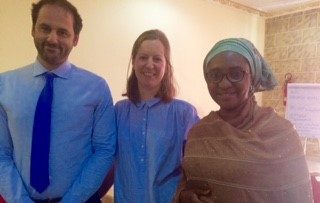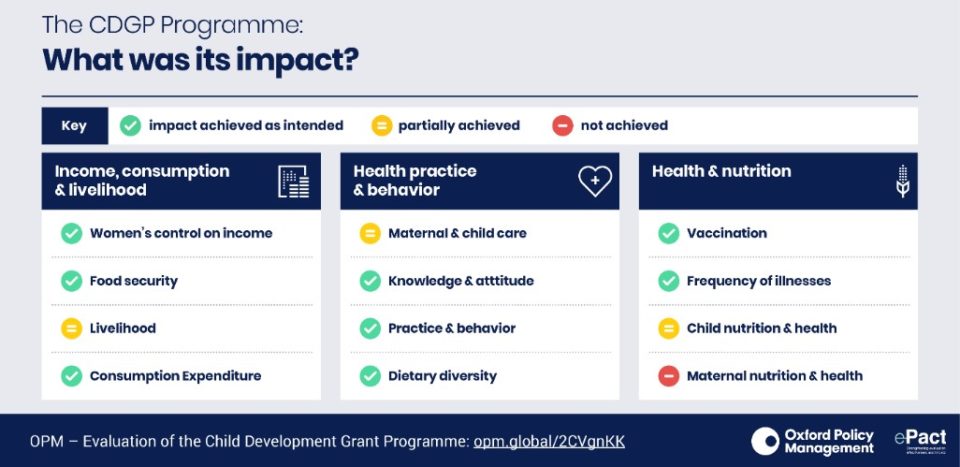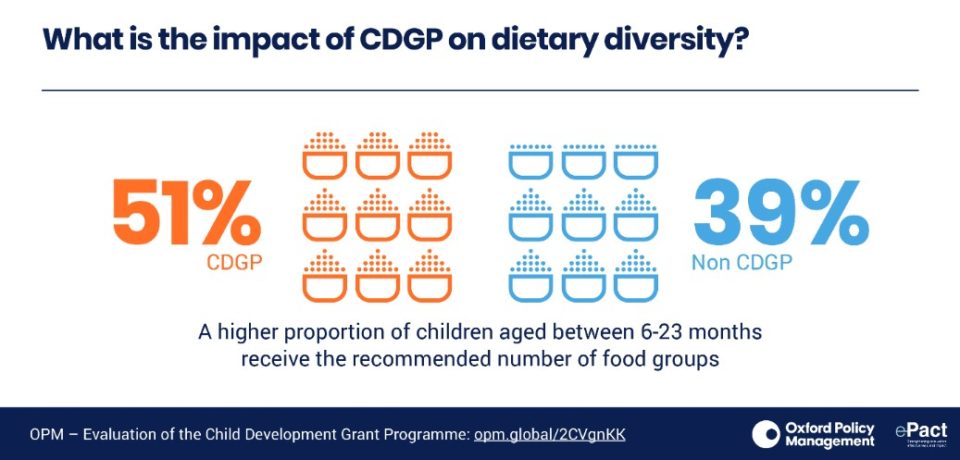10th April 2018 Abuja, Nigeria
Midline Evaluation of DFID Funded Child Development Grant Programme reveals Positive Impact of Cash transfers on Child Nutrition in Northern Nigeria

On March 7th 2018, Oxford Policy Management (OPML) presented to over 80 key stakeholders in Abuja, the midline findings of the mixed-methods evaluation of the DFID-funded Child Development Grant Programme (CDGP). The CDGP programme is a six-year pilot cash transfer programme that aims to improve child and maternal health in two states of Northern Nigeria.
The presenters from the ePact evaluation team, Andrew Kardan and Molly Scott from Oxford Policy Management, were applauded for the highly visual and accessible way the evidence was communicated. This increases the opportunities for policy makers and practitioners to understand and use the evidence. Participants of the event included the Honourable Minister of State for Budget and National Planning Mrs. Zainab Ahmed, DFID, Save the Children, Action Against Hunger, representatives of the Zamfara and Jigawa state and LGA officials and other national and internationals donors and practitioners.
The CDGP programme provides currently a cash transfer of Nigerian Naira (NGN) 4,000 (about £8.60) per month for up to 70,000 pregnant women for a period of approximately 33 months, targeting the first 1,000 days of a child’s life. Alongside the cash transfer, communities in the programme are provided with education and advice about nutrition and health through a Behaviour Change Communication component. The programme is implemented in Zamfara and Jigawa states by Save the Children and Action Against Hunger. The midline evaluation found that the programme had a considerable impact on beliefs and practices around healthy child feeding.

The evaluation found that the programme has also reduced food insecurity and increased dietary diversity, leading to a reduction in stunting for children born after the programme started, but no proportional increases in weight.

The presentation of the findings was followed by participatory sessions that aimed to discuss how to incorporate the new evidence into policy and future programme operations.
Based on these findings, it is clear that the CDGP is a viable social protection instrument that can have important effects on the health and nutritional wellbeing of children in the first 1,000 days of their lives. The programme nevertheless requires further review and adjustments to lend itself to a less resource intensive scalable national programme. A review of the community voluntary approach, the intensity of BCC, the payment modalities, and its link to a broader institutional setting would be the first steps in this direction. Malnutrition and poverty also remain widespread, suggesting the need for complementary interventions.

The evaluation team has now begun its work in carrying out data collection for the endline (approximately four years after the programme began) which will be completed by the end of 2018 and will involve talking to policy makers, programme implementers, local government officials and more than 5000 mothers, husbands and children. The results from these are expected in 2019.

For more information visit the OPM project page to access all the midline reports and infographics:
OPML – CDGP evaluation – midline summary report
OPML – CDGP evaluation – midline infographics
OPML – CDGP evaluation – midline quantitative report (vol 1)
OPML – CDGP evaluation – midline quantitative report (vol 2)
OPML – CDGP evaluation – midline qualitative report
The evaluation is carried out by the e-Pact consortium, led by Oxford Policy Management, in association with Itad and Institute for Fiscal Studies.
